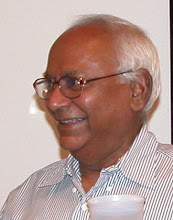A Republic has been defined in several ways. In a strict limited sense, a state or a country headed not by a hereditary monarch but by a citizen of that state or country fulfilling certain eligibility criteria, generally titled as President, is called a Republic. Here, any of such citizens can potentially be a candidate for being a President. On the basis of this definition, even a country having a dictator as its head can be said, and has been actually proclaimed, to be a Republic. Also, countries which are non-secular and are governed in accordance with a set of religious laws and edicts have proclaimed themselves to be republics, such as Islamic Republics of Pakistan and Iran. Similarly, countries having one-party or authoritarian rule call themselves as republics such as People’s Republic of China. Nations subscribing exclusively to a particular political or socio-economic policy are styled as republics such as the erstwhile Union of Soviet Socialist Republics. Certain countries which have a particular desire to emphasize their claim to be democratic, even though they may have only limited or circumscribed democracy, call themselves a ‘democratic republic’ such as Democratic People’s Republic of Korea.
This definition is then further qualified that the President has to be elected directly by people such as in the USA or by elected representatives of people in which case it may be named as a parliamentary republic such as in India. This also has been subjected to manipulation and maneuvers by powerful and crafty military and civil dictators. Another definition, which is not too specific but is imbued with its essential sense, is that a state or a country where people have impact on its government and is headed by a citizen fulfilling specified eligibility criteria is a Republic. In an ideal sense, a state or a country having a government ‘of the people, by the people and for the people’ is truly a Republic. Thus, we can see that while India is a republic in a technical sense, but is not so in a true or ideal sense. On account of the prevailing system of governance, people have impact on the government in a very convoluted and indirect manner which almost negates it. Ideally, India is still far from having ‘a government of the people, by the people and for the people’, as indicated in the previous posts on this Blog.
Sunday, October 11, 2009
Subscribe to:
Comments (Atom)
